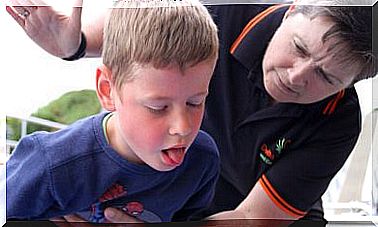If You Want Your Kids To Listen To You, Learn To Manage Your Anger
Educating by example is the first option that exists to take a family forward, as what is seen daily at home is what we tend to replicate for the rest of our lives. For this reason, if you want your children to listen to you, you need to learn to manage your anger and take the opportunity to discipline in a positive way.
Although it is said to be simple, it is not. However, it is about making the effort to apply emotional intelligence in all everyday situations in life, a tool that will make you take the best attitudes in certain situations that can lead you to lose perspective in a few minutes.
According to Salovey and Mayer, emotional intelligence is “the ability to supervise one’s own and others’ feelings and emotions, to discriminate between them, and to use this information to guide self-action and thought.”
So, before changing for any reason, it’s a good idea to analyze the situation and react in a proportional way, because you certainly don’t want any of your behaviors, as a conscious adult, to modify or affect your children’s emotional development.
Why do we get angry?
According to experts, anger is a basic and universal feeling that all human beings and animals are capable of feeling and, in addition, it is considered to be of great value for survival. However, the key is not to become a parent who gets angry too easily.
This is not to say at any time that you should hide emotions that are considered negative, because it is normal, since all kinds of feelings are part of human beings. In any case, it’s about being able to put the dislikes in perspective, since uncontrollable anger negatively affects the whole environment.
For example, when your child breaks a glass because he was playing indoor soccer. Even if you are very angry because it was a gift from your mother, take a breath and explain in a moderate tone of voice and calmly why he cannot repeat this behavior in the future. No doubt he will listen to you and the situation will pass without trauma.
On the other hand, if you do it backwards and when the glass breaks it fills with fury and starts screaming, no doubt your child will be nervous, will start crying and will not understand very well that he cannot repeat this behavior. You will be too overwhelmed for that.
Give the anger 5 minutes and make them listen to you
Anger management is vitally important at every stage of your children’s lives. As they grow older, it can be a complicated situation in more complex stages such as puberty or adolescence. Without a doubt, it is worth making the effort to manage anger and foster communication from the earliest years of life.
Consider that even though the innocence of youth may cover some of these mistakes that we usually make as parents, little by little children are more aware of their surroundings and these behaviors begin to create precedents, completely marking their integration and development in daily life .
In this sense, it is useful to start the practice of anger management and be able to detect when you feel that the disgust has gotten out of control. This will then be the time to step back and take 5 minutes for the anger level to decrease and to be able to take on a more positive attitude when relating to your child.
Instead of keeping your distance and being authoritative with your child, encourage communication and discipline in an intelligent way:
- Get down and speak in an appropriate tone of voice.
- Looking him in the eye, ask him to pay attention to you.
- Once you have his full attention, explain the situation and ask him if he understands.
- Repeat the process as often as necessary until it becomes a habit, as this way you will avoid filling your house with tension and moving away from your child.
In this way, you will be able to make the affective relationship much more positive and the relationship between parents and children based on mutual respect and teaching of values. Apply these tools on a daily basis and without a doubt will help you to take your day to day more peacefully and constantly strengthen the bonds of affection with your children.









